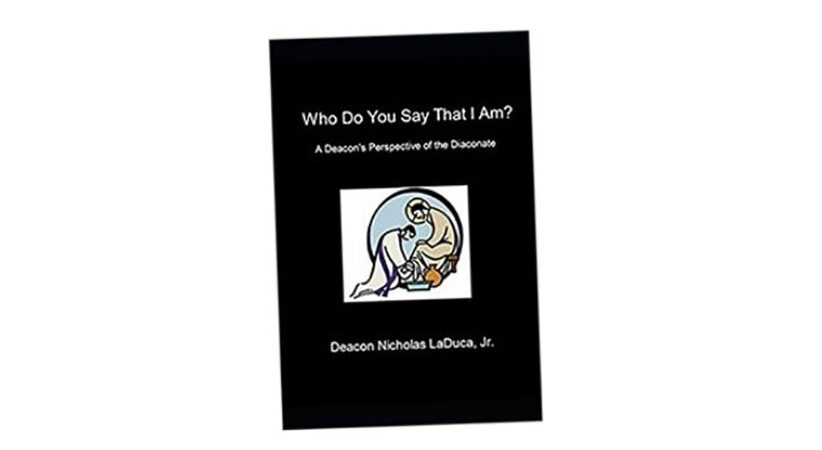Wide-ranging Questions on the Diaconate Considered
LaDuca raises profound and thoughtful questions about the diaconate
Deacon Victor Puscas Comments Off on Wide-ranging Questions on the Diaconate Considered
Once upon a time, I worked as an attorney. I walked into court one day and saw a birthday cake. The judge, sporting a flattop crewcut, invited me to have a piece and explained that it was the birthday of the Marine Corps (Nov. 10). Provocatively, I said, “Oh, yeah … that’s the division of the Navy right?” His face reddening, he replied: “Yes! The men’s division! And the next time you poke fun at my beloved Corps, I’ll hold you in contempt!”
I tell you that story to explain my trepidation in reviewing Deacon Nicholas LaDuca’s book, “Who Do You Say That I Am?” Deacon Nick was born in the Bronx, went to Annapolis, and did 20 years in the Marine Corps. I better not provoke him!
That having been said, the interesting thing for me in reading his book was that it resonated with so many of my own experiences. I live in Illinois, and Deacon Nick lives in Virginia, yet we might as well have been in the same parish.
He raises some profound and thoughtful questions that are universal to the restored diaconate. He points out that, although the restored diaconate has been in existence for over 50 years, there remain a number of existential challenges that confuse the role of the deacon, especially in his relationship to bishops, priests, transitional deacons and the laity.
Deacon Nick stresses that, rather than focusing on what a deacon can do, the emphasis should be on who a deacon is — Christ the Servant, present sacramentally to the people in the church, but more importantly to the people in the marketplace. He explores the concept of vocations, provides a critical analysis of holy orders and offers a review of the most pressing questions facing permanent deacons today, as well as some answers to those questions.
For example, he explores such topics as the reintegration of married men into holy orders, how deacons are perceived in the Church, whether deacons should wear a Roman collar, better uses of the restored diaconate, deacon selection and formation, whether deacons should be compensated for their ministry and the restoration of the bishop-deacon relationship.
In addition, he points out a curious sacramental ritual that occurs at the annual Chrism Mass, where bishops and priests renew and strengthen their vocation, but deacons do not. This is true even though all three offices were instituted at the Last Supper, and all are ordained with the same sacred chrism.
This book is neither lengthy (128 pages) nor intimidating. It is written in an easy-to-read, conversational style. I can almost imagine Deacon Nick telling me the things he wrote in his book over a beer and a bowl of pretzels. I just better remember not to insult the Marine Corps! I would very much recommend that everyone, not just deacons, read this book. I believe it will provide a great deal of clarity into the present state of the permanent diaconate in the United States.
DEACON VICTOR PUSCAS is the director of diaconate formation for the Diocese of Joliet, Illinois. He holds a D.Min. degree from Catholic Theological Union in Chicago.





